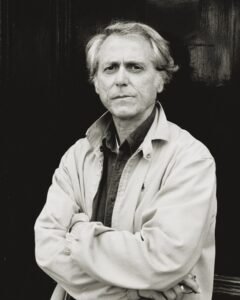Books By Don DeLillo
- Americana (1971)
- End Zone (1972)
- Great Jones Street (1973)
- Ratner’s Star (1976)
- Players (1977)
- Running Dog (1978)
- Amazons (1980)
- The Names (1982)
- White Noise (1985)
- Libra (1988)
- Mao II (1991)
- Underworld (1997)
- The Body Artist (2001)
- Cosmopolis (2003)
- Falling Man (2007)
- Point Omega (2010)
- Zero K (2016)
About Don DeLillo
 Don DeLillo, born on November 20, 1936, is an American novelist, playwright, and essayist acclaimed for his distinctive literary style and exploration of contemporary American culture. With a career spanning several decades, DeLillo has established himself as a prominent figure in postmodern literature, known for his profound insights into the complexities of modern society, media, technology, and human psychology.
Don DeLillo, born on November 20, 1936, is an American novelist, playwright, and essayist acclaimed for his distinctive literary style and exploration of contemporary American culture. With a career spanning several decades, DeLillo has established himself as a prominent figure in postmodern literature, known for his profound insights into the complexities of modern society, media, technology, and human psychology.
DeLillo’s writing often delves into themes such as the nature of reality, the impact of mass media, the fragility of identity, and the pervasive influence of consumerism. His narratives are characterized by their experimental structures, non-linear storytelling, and richly layered prose, which challenge readers to reconsider conventional notions of storytelling and meaning.
Throughout his career, DeLillo has penned numerous critically acclaimed novels, each contributing to his reputation as a master of contemporary literature. Works like “White Noise,” “Libra,” “Underworld,” and “Zero K” are celebrated for their intricate narratives and incisive commentary on the modern condition.
In addition to his novels, DeLillo has also written plays and essays, further showcasing his versatility and intellectual depth. His contributions to literature have earned him numerous awards and honors, including the National Book Award for Fiction, the PEN/Faulkner Award for Fiction, and the Pulitzer Prize for Fiction.
Beyond his literary achievements, DeLillo’s influence extends beyond the realm of literature, with his works inspiring discussions in fields such as philosophy, sociology, and cultural studies. His ability to capture the zeitgeist of contemporary America and his keen observations of human behavior continue to resonate with readers around the world, solidifying his legacy as one of the most important voices in American literature.

